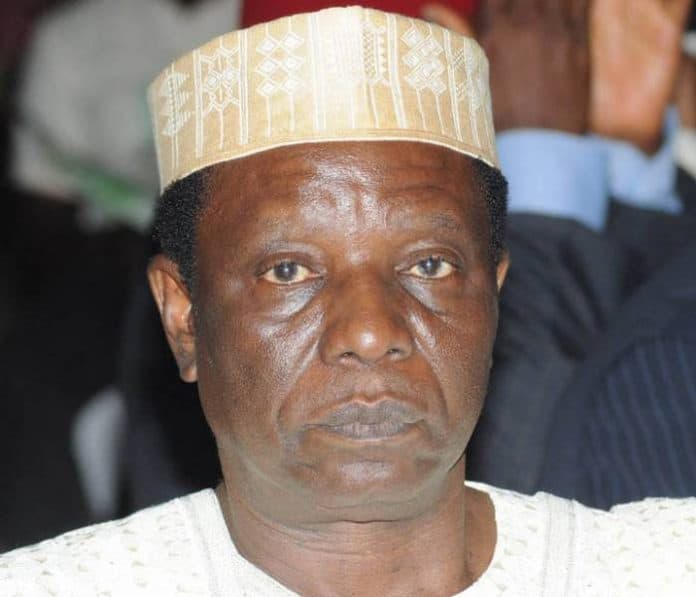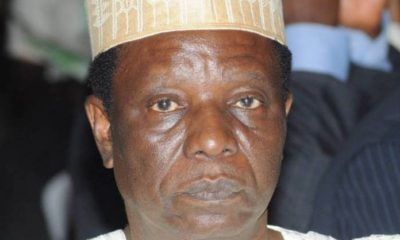Opinion
Anambra 2017: So what has changed?


Tonnie Iredia
Last week was full of assurances that the Anambra State Governorship election fixed for yesterday would be well all in all. On behalf of the electoral body, Dr Nkwachukwu Orji, its Resident Electoral Commissioner in the state, said all activities to make the electoral process successful had been done. As a long time election observer, this writer was particularly excited to hear that Anambra ranked second in the country in terms of collection of permanent voter’s cards (PVCs). This meant that voter turn-out was likely to be high especially as the election had a record 37 candidates. But as it is with Nigerian matters, implementation statements are always disjointed with no effort made to throw some light on matters about which people are anxious and expectant. So, how did Anambra achieve the feat of getting its trading population to leave their wares and patiently follow the task of collecting their voters’ cards? Anyone who has followed the elections of Anambra state would no doubt be in disbelief.
Two matters begged for comments. First, there was the old story that during voter’s registration exercises in the state, materials could be hijacked and diverted to the forest where some ingenuity was deployed to regularize the electoral malpractice of multiple registrations. Second, in the recent past, the Immigration Service in the state had raised alarm over voter’s cards that were diverted to unqualified aliens. It therefore amounts to leaving the argument in the air to tell the nation that in terms of collection of permanent voter’s cards, Anambra ranked second with no reference to what was done about the cards the relevant agency of government found to have been diverted to unqualified aliens. On this score, our considered opinion is that not much has changed in the conduct of elections in Nigeria.
An obvious example of doing the same things over and over again while awaiting different results is the pedantic method of securing the electoral process. The police say there would be on ground 26,000 personnel in every nook and cranny of the state along with three police Aerial/Surveillance Helicopters, ten gun boats, 15 Armoured Personnel Carriers (APC) and 303 police patrol vehicles to cover the entire state including the riverine areas and difficult terrains. On its part, the Nigeria Security and Civil Defence Corps (NSCDC) deployed 11,000 officers and 300 dogs, four drones, ambulances and medical teams as well as 115 vehicles for the same event. We have heard all of this before in Edo and Ondo States where the last set of elections were held. What we are yet to hear is why this posture of over-policing is being repeated despite its attendant negativities
Those who should know including INEC itself have severally indicted the security operatives. In particular, CLEEN Foundation had reported that not only have the police “been unable to provide effective security for elections; they have themselves been involved in acts of electoral fraud and crime.” Last year, video shots on the world web pin-pointed security personnel in uniform, openly soliciting bribes from politicians in the last Edo Governorship elections. Against such background, it probably would have been salutary, if the nation had been given a chance to watch the prosecution of these officials before we are told again about how thousands of them have been mandated to return to a similar event. Instead, what we hear is the deployment of the highest ranking to the event and how a state commissioner of police has been changed which added nothing to anything in the past
Even the vexed issue of level playing field has not changed hence one of the front runners, Osita Chidoka of the United Progressive Party UPP was constrained to post on the web a story with illustrative photos accusing agents of Governor Willie Obiano of vandalizing his bill boards and other campaign materials. Level playing field can hardly change when traditional rulers descend from their exalted father of all-throne to dance in the campaign arena. The first such evidence was recorded in favour of Chidoka himself when South East traditional rulers reportedly handed to him as a sign of support the revered Ofoi Igbo staff- the Igbo traditional symbol of power and authority. Again, it will be recalled that earlier at a joint meeting, the state chapter of Ohaneze Ndigbo and Traditional Rulers zoned the governorship in 2017 to Anambra North thereby prejudicing other citizens in breach of our constitution. More significantly, a traditional ruler, Ogirisi Igbo Chief Rommy Ezeonwuka with vested interest in the re-election of the governor, threatened to unleash a traditional deity, Ogirisi against the All Progressives Congress, APC, stressing that the wrath of the gods of the land are stronger than the enemies of the state.
On institutional efforts to get a level playing field, only INEC seemed to have gotten its posture correct while that of the police was poorly managed. At a stakeholders meeting, INEC enthroned uniformity in its handling of all candidates by rebuffing pressure to accord special recognition to the APGA candidate in his capacity as the incumbent governor. Unfortunately, that of the police which sought to withdraw its personnel from the governor which would have put him on the same footing with other candidates was rejected. It would appear that the decision of the police was seen in several areas as a directive from the APC ruling federal government to weaken the governor. The Senate was the first to voice its disapproval which its members at plenary openly canvassed. This probably made the president to intervene by directing the immediate reinstatement of the withdrawn officials.
We doubt if the police was really wrong. Why should one candidate be allowed to move about with an intimidating force while others adjudged qualified to be in a contest with him not be given same support? The inappropriateness would be better seen when we consider how police personnel attached to a governor had in the past earned bad image for the police through partisanship. Unfortunately, the police sang discordant tunes by denying the withdrawal at the state level while at the federal level they advanced reasons for the withdrawal.
In all, all the incidentals that have overwhelmed the election process can be traced to the fact that unlike what is happening elsewhere, Nigeria has remained an analogue nation only during elections. So, nothing can change.
– Tonnie O. Iredia served Director General of Nigerian Television Authority


